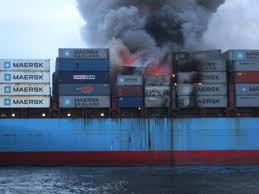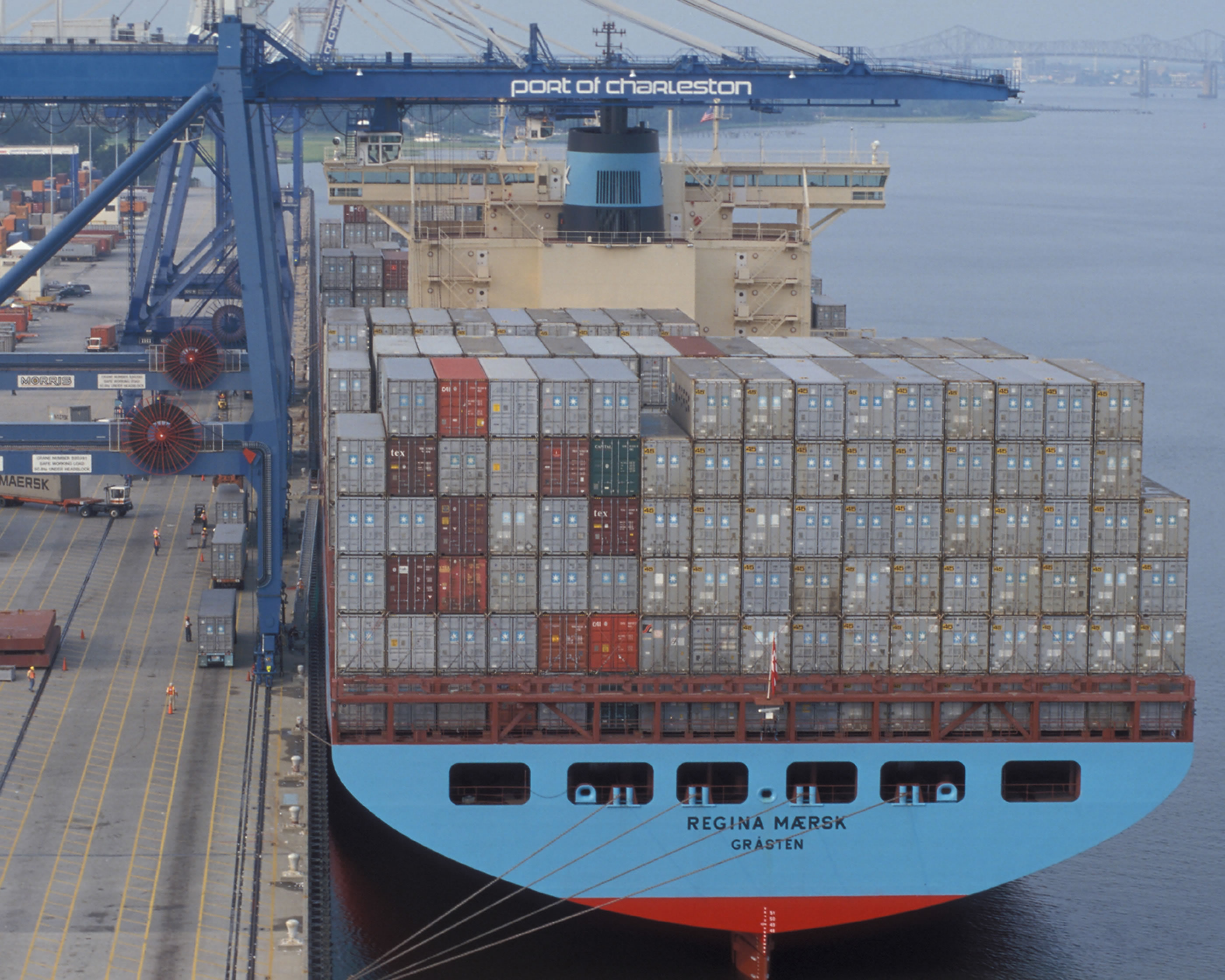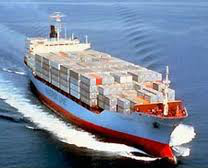 General Average – Port of Refuge
General Average – Port of Refuge
(Note: the term ‘port of refuge’ is used here in its wider sense as indicating any port at which general average expenses is incurred. It may thus include a normal port of call for loading, bunkering, etc. or discharge.)
1 Reports to the shipowner
Whereas at the time of the casualty the decisions as to what steps should be taken must of necessity be left largely to the master and others on the spot, once the vessel has achieved the relative safety of a port it is usually practicable for more important decisions to be referred to the shipowner’s head office and it is essential that the latter should be provided with sufficient detailed information.
a) Requirements in this respect must vary according to the facts of each case but the following particulars, at least, will be required in cases where they are appropriate:
b) Details of the operations which are necessary to enable the vessel to proceed on her voyage with the cargo.
c) The estimated total period of extra detention on account of the casualty.
d) Extent and cause of damage to the vessel, what repairs are necessary, whether these are permanent or temporary repairs and whether they necessitate dry-docking or discharge of cargo.
e) Approximate quantity, nature and if possible value of cargo which has to be discharged and the reason for such discharge.
(Note: It is usually the practice for a special insurance on such cargo, by open cover, to be arranged by the shipowners and the above information will be required for this purpose as well as others. Head office should always be informed, as a matter of urgency, of a possible forced discharge to enable such cover to be arranged.)
f) The recommendations of ship and cargo surveyors as far as they affect the action to be taken.
g) If the casualty (eg. a fire) occurs during normal discharging or loading operations, particulars of the proportion of cargo (ie number of shipments, type, tonnage and value as appropriate) that was on board at the time of the casualty.
h) Particulars regarding damage to cargo.
i) If completion of the voyage with the whole of the original cargo is likely to be impracticable, what facilities are known locally to exist for forwarding the cargo or what possibilities of its sale.
j) Estimated expenses incurred or to be incurred.
2 Estimated expenses
It is extremely important for the shipowner’s head office to be aware of the approximate expenditure involved at the earliest possible moment. There is often a natural reluctance on the pan of those on the spot to provide such estimates due very often to lack of information available to them. It should be remembered, however, that whatever the difficulties of agents and others in this respect they are likely to have a better idea of what is involved than can be assessed at head office.
Estimates are usually required not only to enable the various alternative courses of action to be considered but also to enable a decision to be taken as to what, if any, form of general average security is required from cargo and to enable insurance cover on average disbursements to be arranged.
A message should therefore be sent from the port of refuge to head office as soon as possible and, in any event, in ample time before the vessels sailing, listing the estimated expenses under the various heads. A mere statement of the total estimated expenses at the port, or of the total estimated general average expenses, is not sufficient. The following is a typical example of a message from a port of refuge which would provide the information in the form required.
Estimated expenses and port charges € 2.000,00 cargo discharge € 12.000,00 storage € 5.000,00 reloading € 9.000,00 repairs temporary € 15.000,00 permanent € 30.000,00 including extra cost overtime € 5.000,00 surveys, agency etc. € 2.500,00 various crew matters € 1.000,00 total € 76.500,00.
Needless to say if estimates are requested by head office in a certain specified form this should be followed. Estimates of wages and maintenance of crew and fuel and stores consumed will not normally be required since these can be calculated at head office.
The situation at the port of refuge may often require that overtime be worked on some of the operations and often the extra cost of such overtime may be allowable in general average even though the cost of the operation itself is not. Where the amount involved is significant it is helpful to know the approximate cost of such overtime, which should always be stated as the extra cost over and above the cost of normal working.
3 Appointment of surveyors
A surveyor should be appointed to examine and report on any damage to the vessel. Unless indicated otherwise by head office this should normally be done locally through Lloyd’s Agents, or other agents for underwriters. It should be remembered that the classification surveyor, when acting in that capacity alone, will not normally deal with such matters as cause of damage and repair costs.
When cargo damage is involved or when such damage is an anticipated result of a forced discharge, a cargo surveyor should be appointed to act for the general interest. Here again this should normally be done locally through Lloyd’s Agents unless otherwise advised by the head office of the shipowners. In cases involving very substantial damage to cargo it is frequently the practice to arrange for a specialist cargo surveyor to proceed to the port, either to survey the cargo in conjunction with the local surveyor or to take over from the latter.
Where the ship has sustained damage in consequence of a general average sacrifice, it may be necessary for a general interest surveyor to examine the vessel in order to establish the extent of the damage.
Whenever practicable, arrangements should be made for accounts of expenses incurred to be approved for cost and endorsed by the appropriate ship or cargo surveyor.
It is worth noting that although the general interest surveyor may, in some cases, be appointed by the average adjuster, his appointment is on behalf of the shipowner who is responsible for the proper conduct of the general average and it is he who will be accountable for the payment of the surveyor’s bill.
4 Damage to cargo
Shipowner’s duty to protect the cargo
The shipowner has a continuing obligation as bailee to care for the cargo in his custody and when necessary during the voyage to make arrangements for re-conditioning or sale of such cargo. Whenever practicable, decisions in this respect should be referred by him to the cargo owner but this is frequently not possible, particularly in cases of vessels carrying general or commodity cargoes consigned to a large number of receivers.
In such cases the shipowner must act himself, after taking the best advice possible, in the best interests of the cargo. Although the master has by law-certain powers to act for cargo in such matters, in practice no action should be taken by master or ship’s agent to recondition, forward or sell cargo without prior reference to the head office of the shipowner, except in cases of extreme urgency.
The advices of the cargo surveyor acting in the general interest should be sought in all matters affecting the handling and treatment of damaged cargo.
When cargo is sold at the port of refuge the proceeds should be held by the ship’s agents in a separate account pending instructions as to their disposal. The proceeds, less sale charges and brokerage if any, belong to the cargo and must be kept intact and should not be used to settle disbursements even though such disbursements are connected with the care and custody of the cargo, except with the agreement of the cargo interests.
General average damage to cargo
It is important that the shipowner should be informed as sewn as possible of the nature and approximate extent of any loss or damage to cargo and that the information should be conveyed in such a way that the approximate allowances in general average, if any, can be assessed. The cargo surveyor should be consulted as appropriate when compiling this information and the following points in particular should be borne in mind:
Fire. In fire cases the correct classification of loss and damage is most important and incorrect advices can often lead to confusion. Where the York-Antwerp Rules 1974 are applicable, damage should be classified solely in terms of its precise cause, viz fire, heat, smoke, water, foam or other means used to extinguish fire etc. It should be borne in mind that smoke damage, albeit increased due to the use of CO2 , for extinguishing purposes, cannot be treated as ‘extinguishing damage’ for the purpose of making allowances in general average.
Jettison. It will be necessary not only to know the nature and amount of cargo jettisoned but also to have some indication of whether such cargo was, at the time of jettison, in sound, damaged or worthless condition.
Handling damage. As provided by Rule XII of the York-Antwerp Rules 1974 damage due to discharging, storing, or reloading cargo may give rise to allowances in general average. Damage which occurs during the course of these operations but from an entirely separate cause, eg as a result of a fire in the warehouse ashore, should be noted separately.
Every reasonable precaution should be taken, in consultation with the cargo surveyors, to prevent handling damage occurring.
Cargo claims
In the usual way the shipowner will be protected by the terms of the contract of affreightment from liability for claims for loss of and damage to cargo arising from the casualty.
In cases where general average is involved receivers of shipments which are uninsured should be requested to submit all documents in connection with such claims to the average adjusters as soon as possible, for consideration in the adjustment.
With regard to insured interests, receivers should refer claims to the underwriters, requesting that the latter should notify the average adjusters as soon as possible of settlements effected by them.
5 Non-separation agreement
A vessel may arrive at a port of refuge under average and be in need of major repair to enable the voyage to be continued safely. It may be necessary to discharge and store the cargo to enable repairs to be carried out, with the consequent cost of reloading. There may be several months delay while the ship is made ready and the shipowner may be able to insist on retaining possession of the cargo for delivery at destination on completion of the voyage.
In these circumstances it may benefit the general average if the cargo, instead of being stored and reloaded, is forwarded to destination in another vessel. It the circumstances justify the shipowner in maintaining his possessory lien on the cargo, he may give this up if the cargo owner is willing to enter an agreement whereby the shipowner will deliver the cargo in another vessel and the cargo owner agrees to contribute in general average as though the cargo had been carried to destination in the original vessel.
This agreement is a commercial deal and its purpose is to save expense to the general average. It is usually incorporated into the average bond and underwriters’ guarantee forms.
While the intention of this agreement is to place the parties in the same position as they would have been had the adventure continued by the
original vessel, three things need to be noted.
1) The shipowner can only request this agreement if there is a probability that general average expenses will be avoided or reduced by forwarding cargo, and that he has a right to maintain his lien.
2) The cargo interests should fear nothing by signing the agreement as its provisions make it clear that rights in general average are not affected, and the intention is to place the parties to the adventure as nearly as possible in the same position as they would have been had the voyage continued in the original vessel. The shipowner must ensure that the cargo is not placed in any worse position than it the voyage had continued as originally contemplated.
3) In special circumstances the terms of the standard form of non-separation agreement may be inappropriate and it may be necessary, on the advice of the average adjuster, for the parties to enter into an agreement designed to meet the unusual situation.
6 Insurance on general average disbursements
Parties to an adventure, particularly the shipowner, may incur general average disbursements at a port of refuge. Contributions to those disbursements are assessed on the basis of values of ship and cargo and other interests on the completion of the voyage. If, between the port of refuge and destination, the ship, cargo or other interest has an accident which has the effect of reducing one or more of their respective values then the contribution payable by all interests will be affected. Some will go up, others will go down. In an extreme case the ship with all its cargo may sink and be lost before it reaches destination. In this case there may be nothing left to contribute to the general average.
The purpose of insurance on average disbursements is to protect the concerned in the general average against these possibilities. Average disbursements clauses (A) have the effect of ‘freezing’ the percentage of contributions of the interests to the adventure so that they are not affected by any subsequent accident. The (B) clauses are on more limited conditions, providing cover in cases where a subsequent accident has reduced the contributory values to nil or where it has reduced the contributory values to an extent where they are less than the general average disbursements. The (B) clauses pay to the extent of the deficiency thus arising.
Clause 4 of the average disbursements clauses identifies the subject matter insured to be disbursements, salvage and salvage charges inclusive of costs. Sacrifices of ship, cargo or freight are not insurable unless expenses have been incurred in order to make good the loss prior to arrival at destination. Certain other expenses are not usually included in this insurance. For example, maintenance of the crew and bunker consumption, unless replaced at the port of refuge, commission and interest allowable under the York-Antwerp Rules, adjuster’s charges, except those incurred in dealing with matters up to leaving the port of refuge.
Only the expenses which are allowable in general average, or for which a liability has been incurred and which will ultimately be allowable in general average, are covered by this insurance. These are port of refuge expenses, wages of crew, repairs to ship or cargo, temporary repairs and excess cost of overtime allowable in general average, salvage award and legal fees, costs of administration and premiums paid on issuing security, bail fees etc.
According to clause 5.2 the sum to be insured is the estimated amount of the disbursements, costs and charges at the inception of the risk, and, subject to a pro-rata additional premium, this may be increased by not more than 25%. If this is not sufficient to cover the sum eventually found to have been incurred, a separate insurance may be taken out to cover the balance.
7 Abandonment of the voyage
When the ship with cargo on board is so severely damaged as to make repairing her impossible or unreasonable from a business point of view, the shipowner may wish to consider abandoning the voyage. This is a very serious step to contemplate and the shipowner must always take advice from his solicitors and the Protection and Indemnity Association.
Some circumstances which may justify abandoning the voyage are as follows:
a) Where the ship is very badly damaged and the cost of repairs will exceed her value when repaired.
b) Where the likely delay for repair is so long as fundamentally to change the nature of the contract from that into which the parties originally entered.
c) Where the cargo is deteriorating rapidly and cannot reach its destinations.
d) Where circumstances change radically, such as with an outbreak of war.
It should be carefully noted that abandonment of the voyage vis a vis cargo is not the same thing as abandonment of the ship to underwriters.
When a ship is so badly damaged that the cost of recovery and repair will exceed her value (as per the Marine Insurance Act 1906, section 60) or her insured value (as per the Institute Time Clauses Hulls), the assured must give notice of abandonment to the hull underwriters if he wishes to claim a constructive total loss on his policy.
Both the abandonment of the voyage and the abandonment of the ship to underwriters are complex matters and may have serious legal implications. Proper professional advice should always be taken.
Takis Kalogerakos
Marine Underwriter
For more information click
http://ourblog.greenwoods.org/



